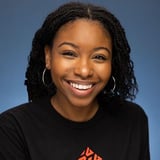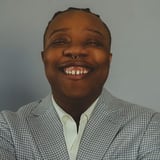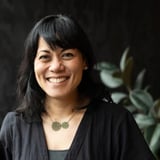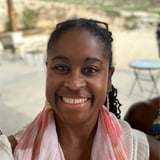Summary
What might a communal, speculative, Black-centred action research method look like? Reclaiming the discarded, the half-forgotten, the oppressed and marginalised is a key technique in AfroFuturism, whether for creating provocative fiction, exploring alternative technologies or developing radical means to thrive within white supremacist systems. How might this perspective be incorporated into user research? What impact could it have on our artefacts and ways of working? This talk will take precedents from projects that range from introducing masquerade performativity to structure research activities, to early stage research into how service design might intersect with narrative to co-design local policy rooted in anti-racist practice. Join us as we explore both how AfroFuturism can be used as design research methodology and what it can offer user research on a broader scale.
Key Insights
-
•
Afrofuturism functions beyond aesthetics as a research framework that centers Black experiences to combat white supremacy throughout the design process.
-
•
Research as praxis involves embedding methods in specific cultural and political contexts, emphasizing accountability in design outputs.
-
•
Black cultural practices like masquerades and storytelling can be reframed as effective design research techniques with community impact.
-
•
Afrofuturism problematizes modern notions of objectivity and discipline by breaking down colonial borders, whether disciplinary or national.
-
•
Design-based implementation research aligns closely with African epistemologies, making methods accessible and participatory.
-
•
Involving young Black people in policy design using Afrofuturist storytelling and comics creates inclusive spaces to surface diverse racial experiences.
-
•
Facilitation techniques inspired by call-and-response foster communal contact and mutual respect, essential when dealing with complex racialized experiences.
-
•
Centering race as a core dimension of research questions opens up more honest investigation and inclusion of marginalized voices.
-
•
Specificity of cultural lineage and positionality improves openness and cross-diasporic dialogue in research contexts.
-
•
Afrofuturistic methods help dismantle the artificial divisions between research and participants through collaborative, creative practices.
Notable Quotes
"I desperately needed a specifically Black centered ethos of design to avoid being a pair of hands contributing to imperialistic white supremacist capitalist patriarchy."
"The masquerade is like the design process, a secret alchemy drawing on public elements to create new social organizing."
"Afrofuturism breaks down and distorts the heretical notions of objectivity and disciplines haunted by coloniality."
"Design-based research methods rooted in African epistemologies are accessible and help include participants as co-creators."
"Storytelling became the root of the workshops because it helped everyone relate and respect each other’s experiences."
"By centering racialized experiences in research, we're not just addressing diversity, but fundamental realities shaping modernity."
"The trickster role in African storytelling reveals observersities in systems and shows new ways things should be done."
"Owning your specificity and positionality makes you more open to diasporic experiences and deeper conversations."
"Afrofuturistic research techniques aren’t just cultural displays, but social design methods with explicit intent and thought behind them."
"Racialization is a dynamic complex technology arising in all societies; centering othering is key to social research."
Or choose a question:
















More Videos

"Authentically engaging with people traumatized by racism demands a significant abundance of care."
Rachael Dietkus, LCSWTrauma-Responsive Design: Reimagining the Future of Design Now
December 10, 2021

"The executive’s interpretation was completely out of line with the customers’ realities."
Robin BeersBeyond Insights: Researchers as Organizational Change Catalysts
March 25, 2024

"Respect candidates’ time and attention; don’t multitask during interviews no matter how busy you are."
Corey LongHiring in DesignOps: A Critical Study on How to Hire and Get Hired
September 23, 2024

"Qualitative research is excellent for discovering needs but poor at quantifying their scale or priority."
Michaela MoraAdvanced Concept Testing Approaches To Guide Product Development and Business Decisions
March 11, 2022

"As a design ops manager, I try to alleviate decision fatigue for design managers so they can focus on the decisions that need their input."
Michelle ChinThe DesignOps Starter Kit
September 29, 2021

"Let me just take you along this journey, where it began."
Renee ReidBecoming a ResearchH.E.R (Highly Enterprise Ready)
June 3, 2019

"Sometimes government rules grow from a single mistake that leads to congressional hearings and new regulations."
Crystal PhilcoxThe Many Faces of Operations
November 6, 2017

"Silicon Valley feels fast, but when the grid goes down, it can be catastrophic."
Gretchen AndersonScaling the Human Center
June 8, 2017

"The issue is not research ops being more organized researchers — the problems and scale are very different."
Kate TowseyThe State of ResearchOps: More Than Just Theory
June 20, 2019
















